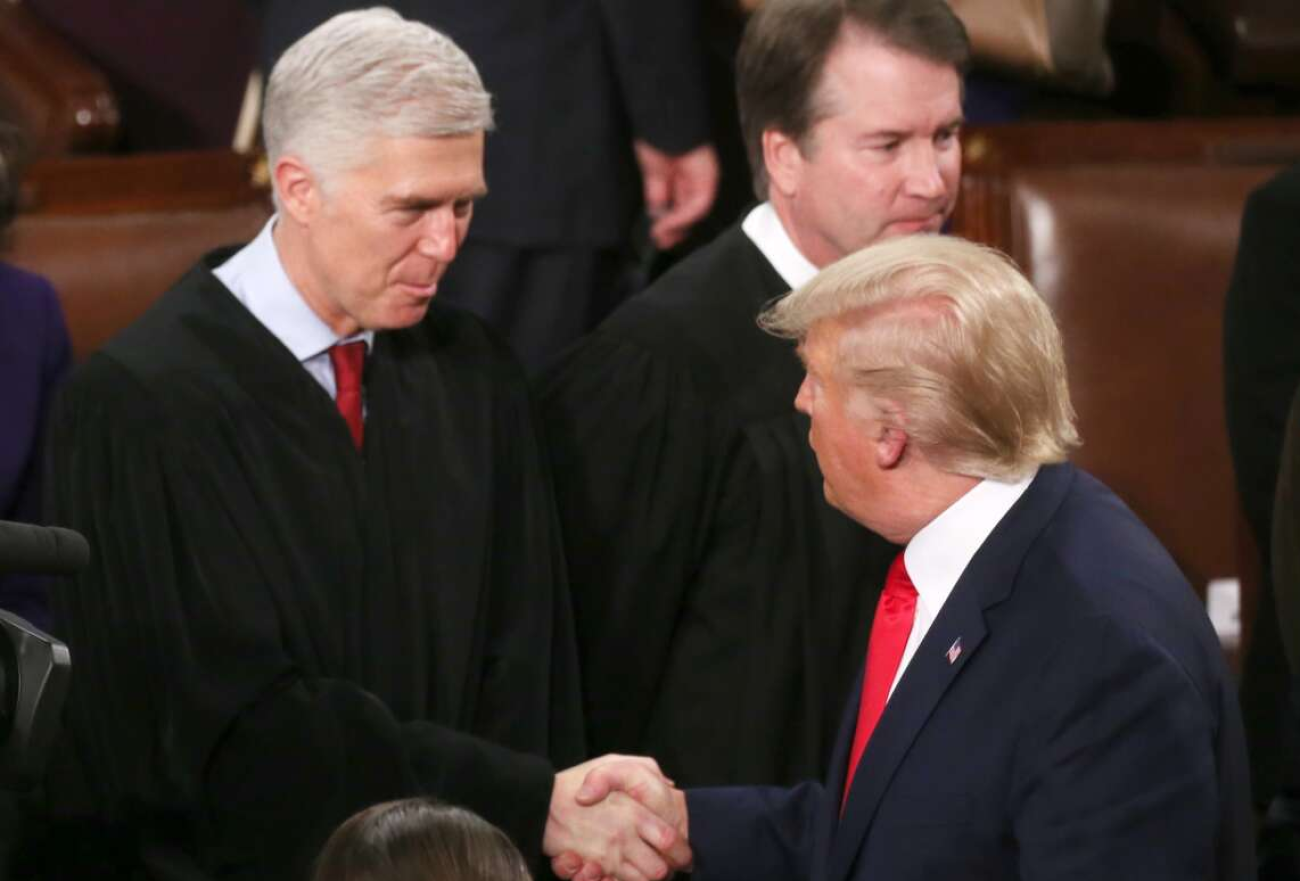In a unanimous 9-0 decision, the U.S. Supreme Court has ruled that federal courts do not have the authority to review visa revocations in cases involving sham marriages for immigration purposes. This landmark ruling reaffirms the broad discretionary power of the Department of Homeland Security (DHS) over visa matters, a decision that is expected to have significant implications for immigration enforcement and policy reforms proposed by President-elect Donald Trump.
A Clear Grant of Discretion to DHS
The case, Bouarfa v. Mayorkas, centered on Amina Bouarfa, a U.S. citizen whose husband’s visa was revoked after DHS determined that his marriage was fraudulent. The revocation, which permanently disqualified him from legal residency, was challenged in court. However, the Supreme Court clarified that while federal courts may review initial visa denials, they lack jurisdiction to intervene after the DHS revokes an approved visa.
In the court’s opinion, Justice Ketanji Brown Jackson described the decision as “a quintessential grant of discretion” to the DHS. The majority opinion stated, “Section 1155 is a quintessential grant of discretion: The Secretary ‘may’ revoke a previously approved visa petition ‘at any time’ for what the Secretary deems ‘good and sufficient cause.’” The ruling underscores that Congress did not impose specific limitations on the authority granted to the Secretary of Homeland Security, thus reinforcing the executive branch’s power in managing visa-related decisions.
Implications for Immigration Policy
This decision comes at a critical time as the incoming Trump administration prepares to overhaul current immigration policies and intensify mass deportations. By affirming that the judicial branch cannot interfere with the DHS’s decision-making process in visa revocations, the ruling effectively strengthens the agency’s hand. Critics argue that this level of discretion could lead to abuse or potential constitutional violations, particularly if decisions are influenced by racial bias or political motivations. However, in the Bouarfa case, there was no evidence suggesting racial animus or bias, lending further credibility to the ruling.
The ruling also highlights a significant point of contention regarding the limits of judicial oversight. During oral arguments, the justices stressed that while petitioners like Bouarfa have the right to challenge initial visa denials, once the DHS has made its decision to revoke an approved visa, any recourse must be pursued through reapplication rather than judicial intervention. Chief Justice John Roberts noted that the affected individuals have the option to reapply for a visa, which could then be subject to judicial review if denied. Yet, this process may impose significant delays and hardships on families already caught in the immigration system.
Concerns from Immigration Advocates
Immigration advocates have expressed concerns that the ruling might worsen the situation for migrants navigating an already overburdened system. With a backlog of over 3 million cases, critics fear that limiting judicial oversight could prevent timely checks on potential abuses of power by the DHS. The American Civil Liberties Union (ACLU) has cautioned that restricting judicial review could allow constitutional violations to go unchecked, although, in this instance, the court found no evidence to support such claims.
Broader Context: ICE and Border Enforcement
The Supreme Court decision comes amid other significant developments in U.S. immigration enforcement. Earlier this month, a federal appeals court ruled that U.S. Immigration and Customs Enforcement (ICE) could continue using a Seattle airport for chartered deportation flights. The 9th Circuit Court of Appeals struck down a 2019 local executive order from King County, Washington, which had attempted to block these deportation efforts. The decision was hailed by the incoming Trump administration as a positive step, especially given President Trump’s pledge to launch a mass deportation effort upon taking office.
In related commentary, Trump’s incoming “border czar” Tom Homan—who previously served as acting ICE director during Trump’s first term—has promised to enforce the president-elect’s deportation orders with utmost determination. “If you don’t want to help, that’s fine. He can get the hell out of the way, but we’re going to do the job. President Trump has a mandate from the American people,” Homan stated. He emphasized that impeding law enforcement would be treated as a felony under Title 8, United States Code 1324.
Looking Ahead: Political and Social Implications
The Supreme Court ruling is set to have far-reaching implications. By firmly establishing that federal courts cannot second-guess the DHS’s discretionary power in visa revocations, the decision bolsters the executive branch’s ability to enforce strict immigration measures. This outcome is likely to play a crucial role in shaping the policy landscape as the Trump administration begins implementing its agenda.
Supporters of the ruling argue that it provides the necessary flexibility for the DHS to act swiftly in safeguarding national security, while critics worry that the lack of judicial oversight might pave the way for arbitrary or biased decision-making. As the debate intensifies, this landmark ruling serves as a stark reminder of the complex interplay between law, policy, and the separation of powers in American governance.
The decision also reinforces the current trend toward a more assertive executive role in immigration matters—a trend that the incoming administration is eager to expand upon. As legal battles and policy debates continue, the ruling will undoubtedly influence future discussions on immigration reform, judicial authority, and the overall direction of U.S. immigration policy.

